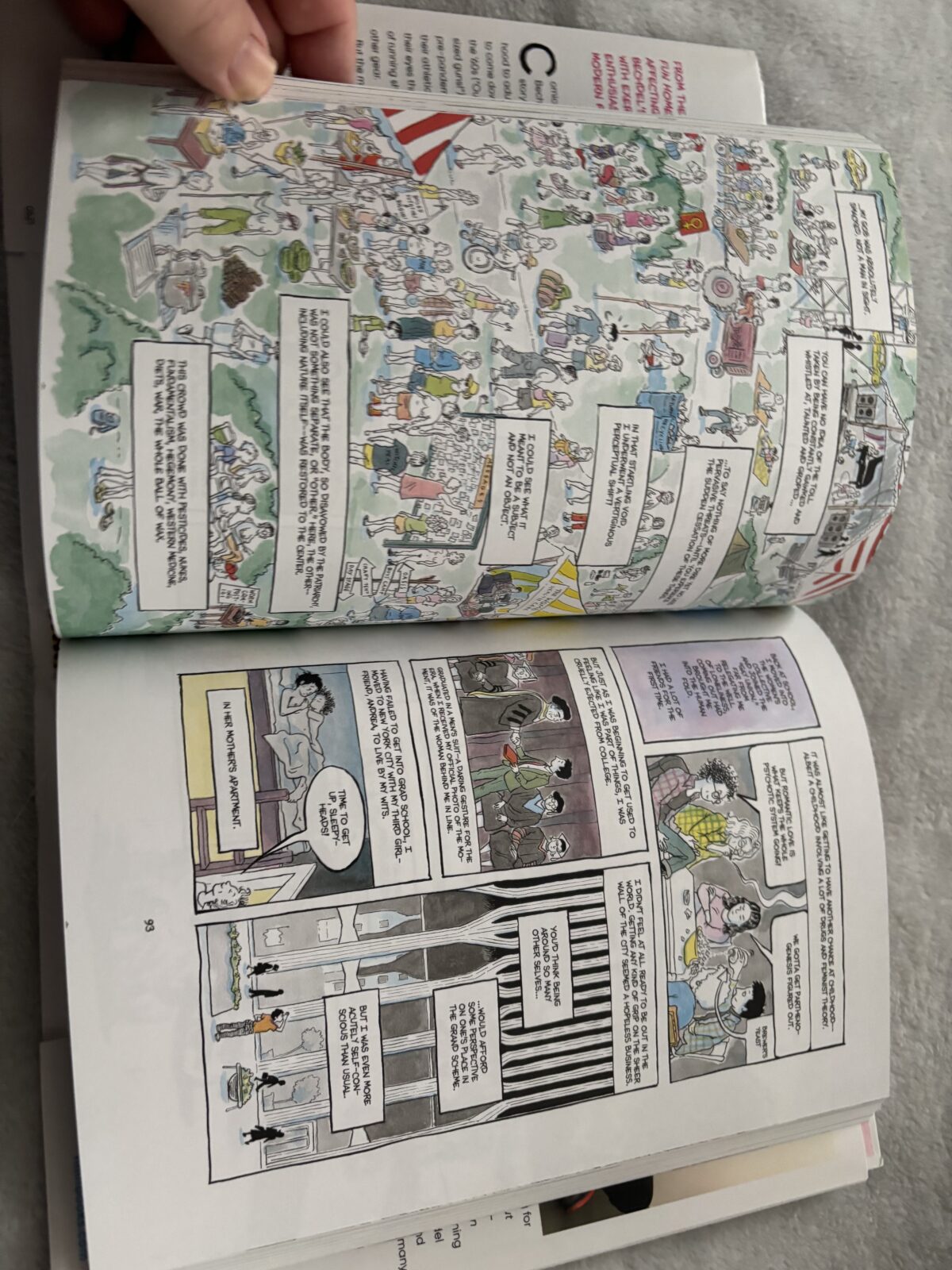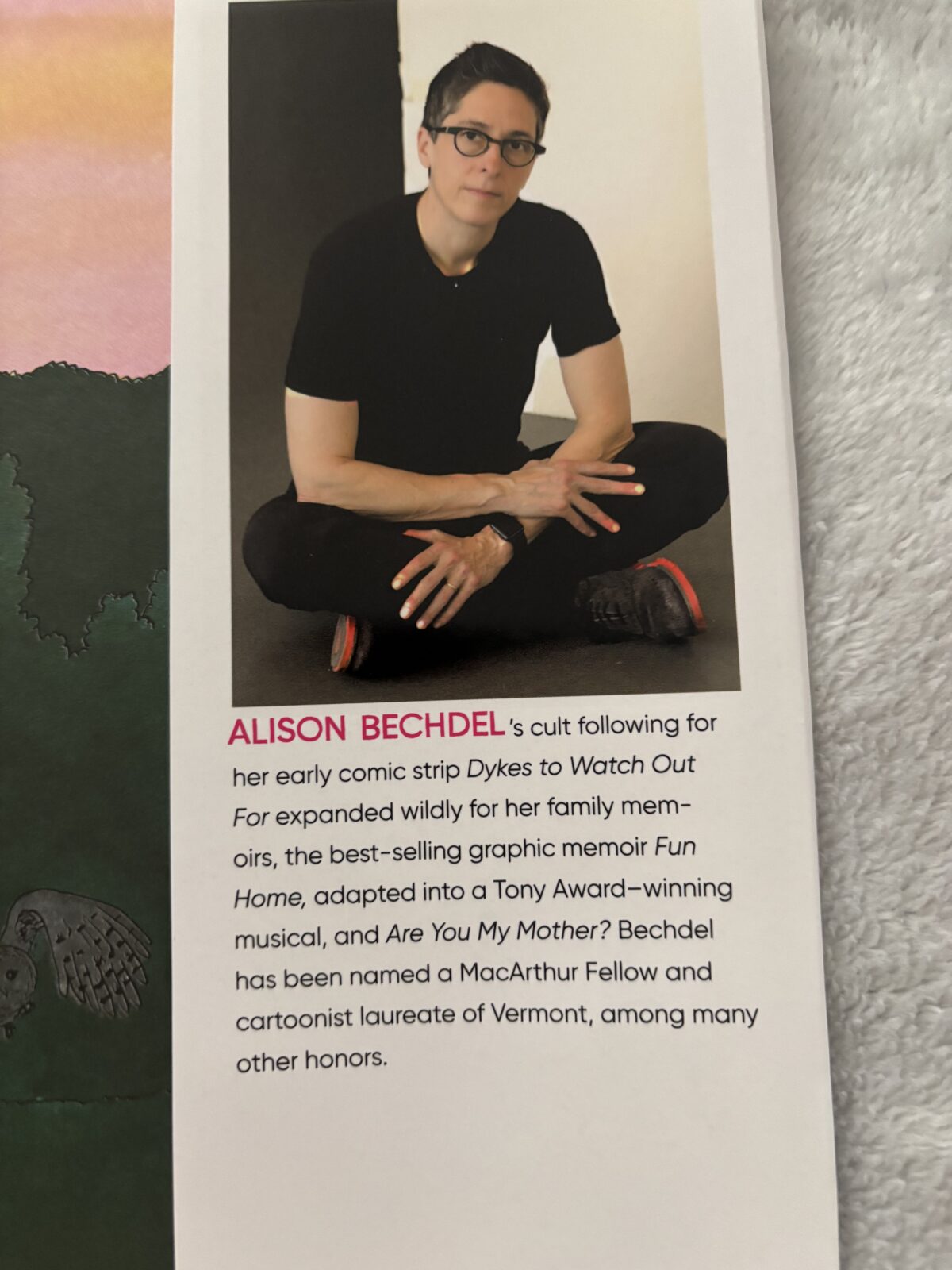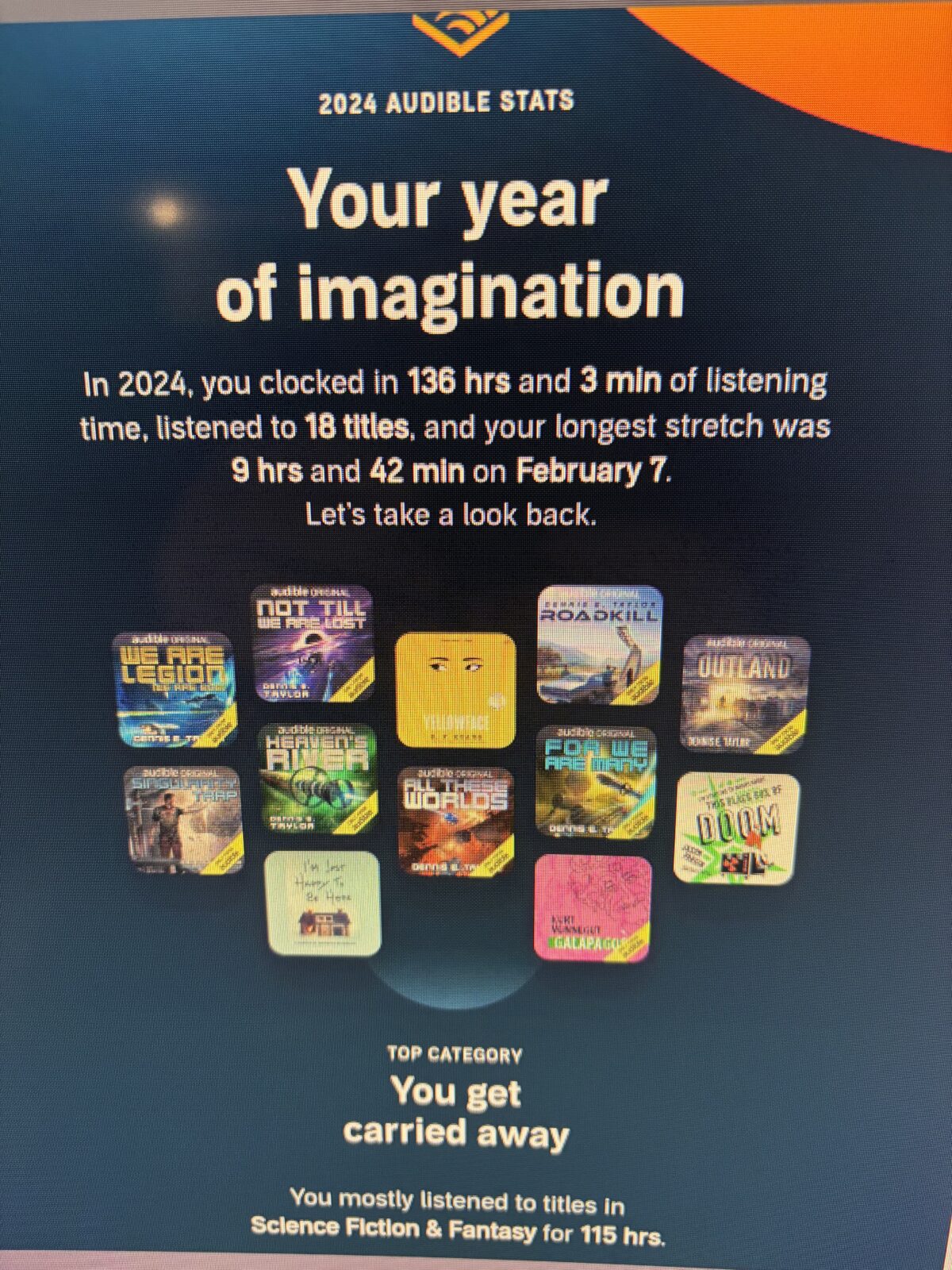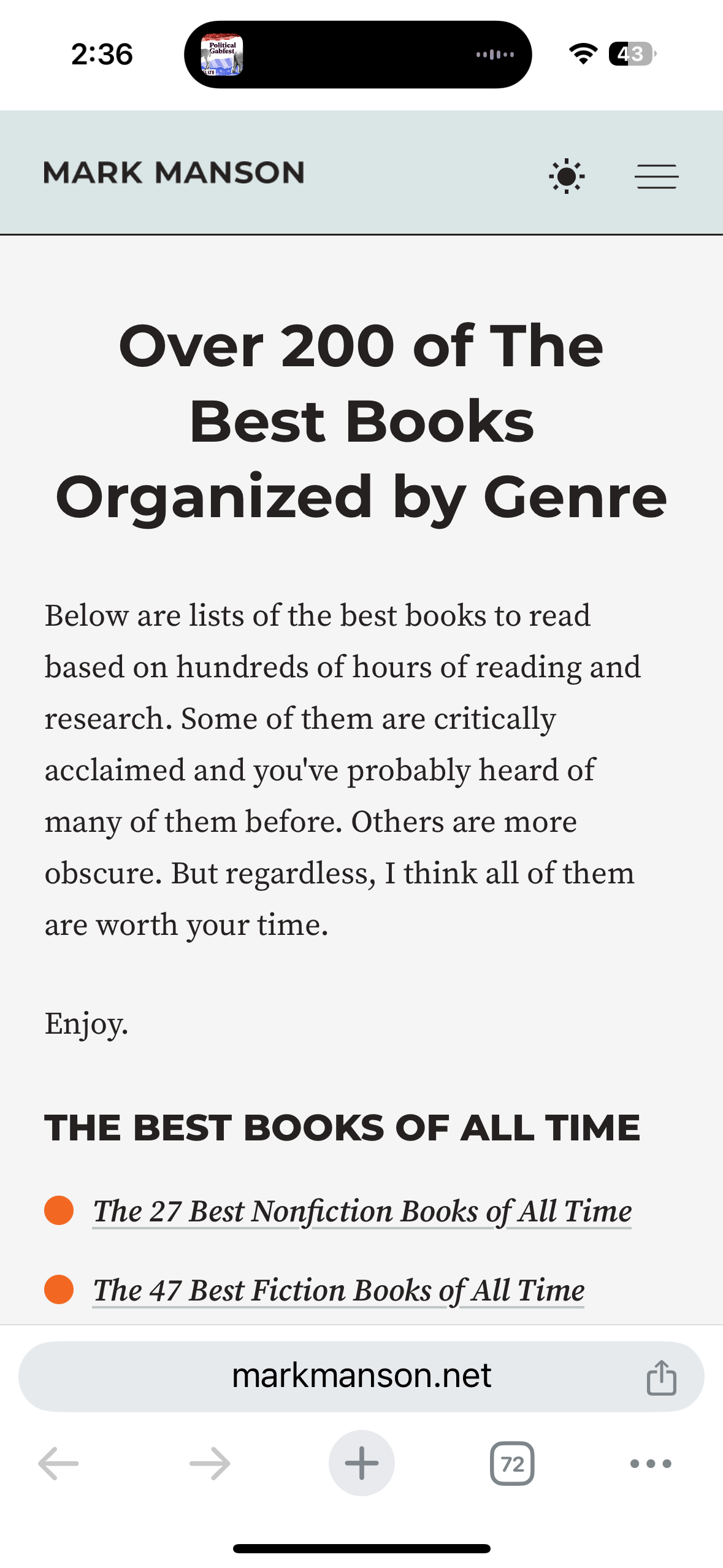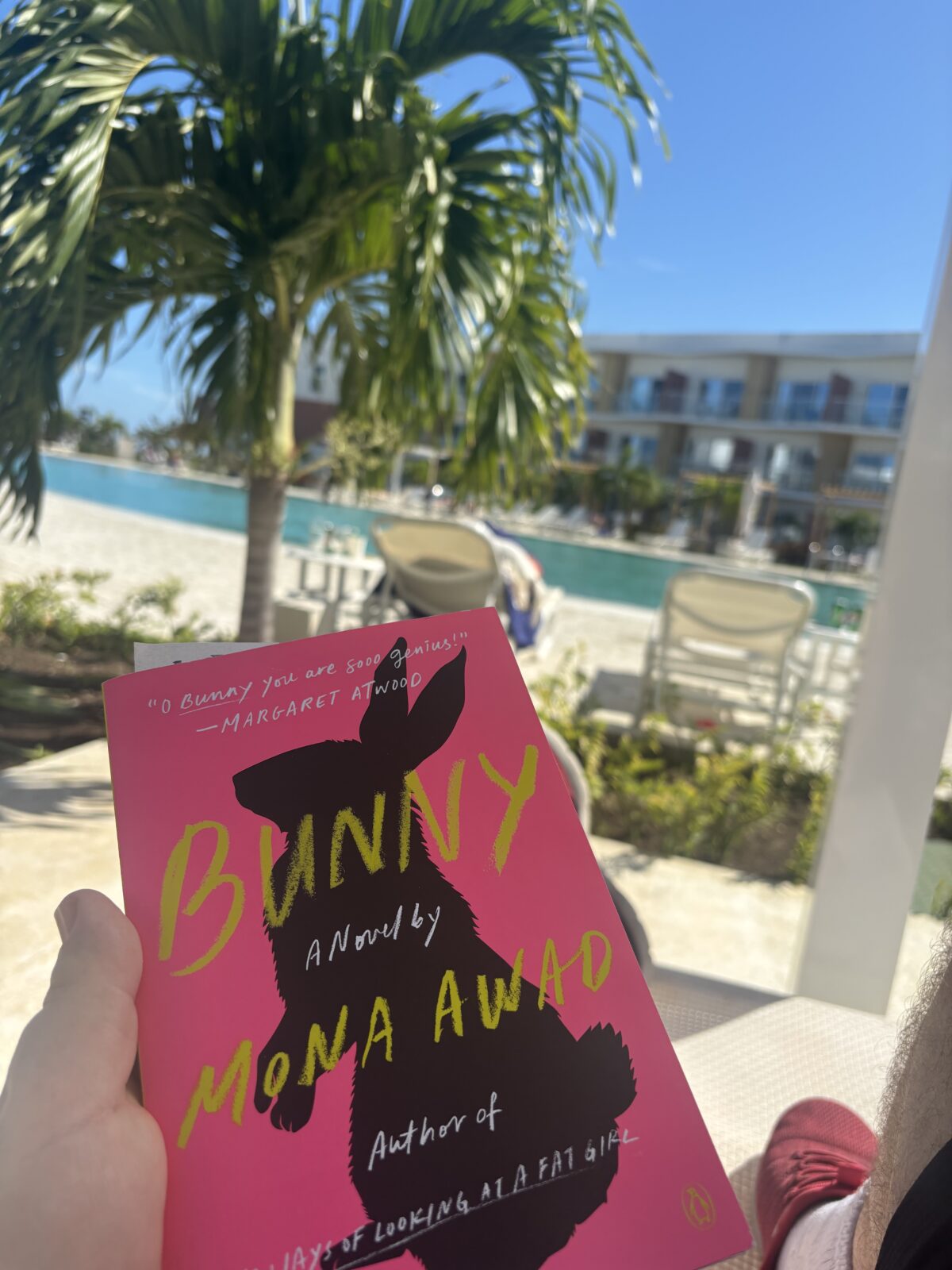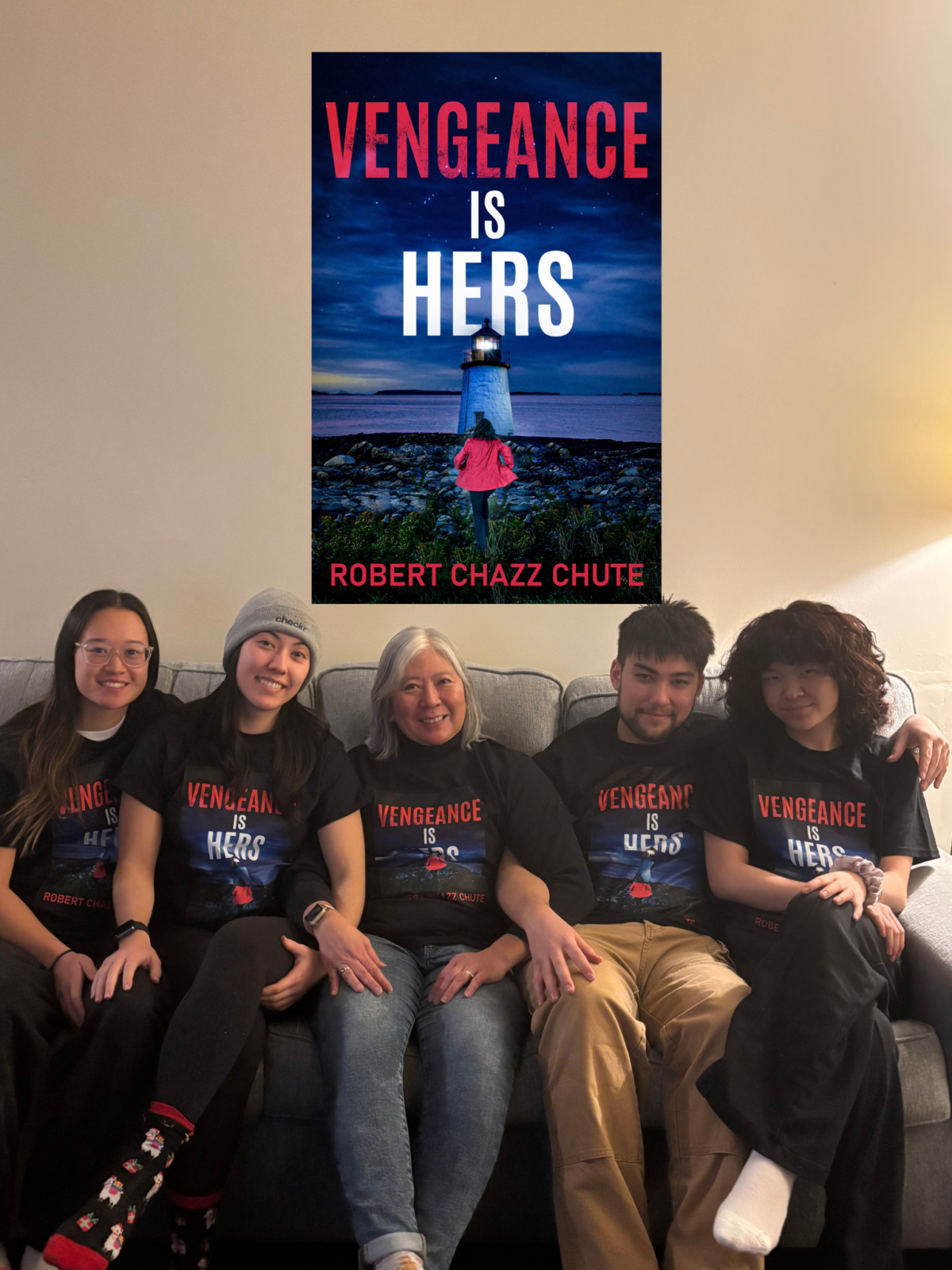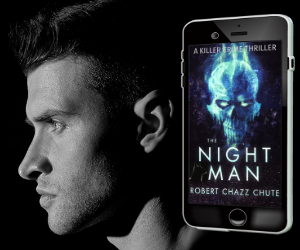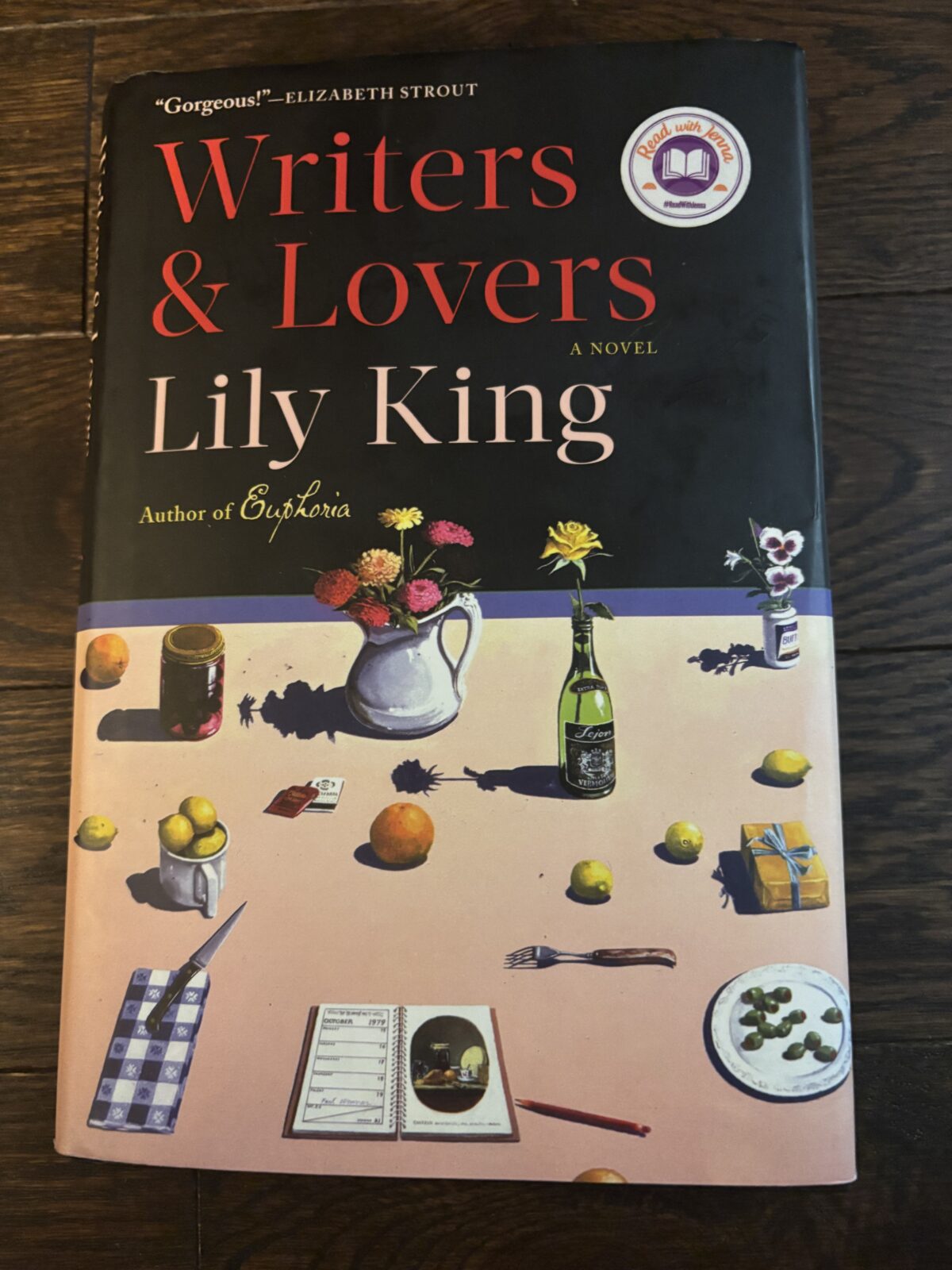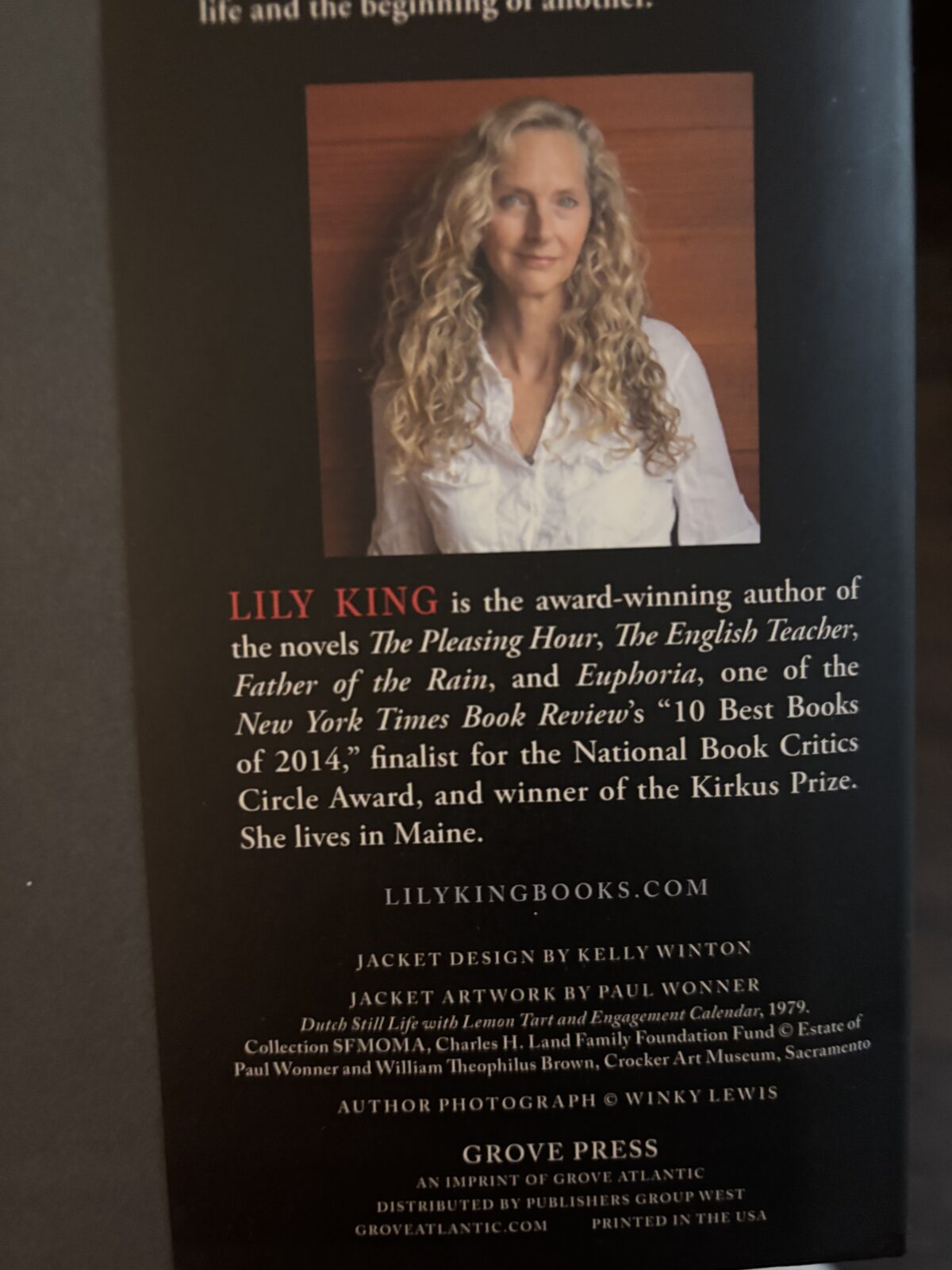Alison Bechdel breaks molds, and I’m here for it. When most people think of graphic novels, The Killing Joke or Watchmen often spring to mind first. Those were epic milestones of a young medium, but this cartoonist takes her creativity beyond old expectations. This is a compelling autobiography told through drawings and sharp observations.
The Secret to Superhuman Strength isn’t about making oneself invulnerable. Bechdel’s quest for health through exercise spans decades, but it’s really about confronting mortality. With humor, honesty, and, most of all, vulnerability, she chronicles her career struggles, personal failings, and a holistic view of her journey. Nothing is off-limits in this auto-biography of an artist pursuing a unique life and achieving success in an underappreciated medium. (Warning: distrust success. From her experience, it looks as exhausting as it is exhilarating, and, of course, it’s fleeting. That artistic struggle doesn’t end.)
If you aren’t already familiar with this celebrated American cartoonist, you’ve probably heard of the Bechdel test. She says now that the test began as a joke, but it spurred serious discussion. Raising awareness of the representation of women, the test is whether at least two female characters in a fictional narrative have a conversation about something other than a man. That’s all I knew of Alison Bechdel before I found The Secret to Superhuman Strength.
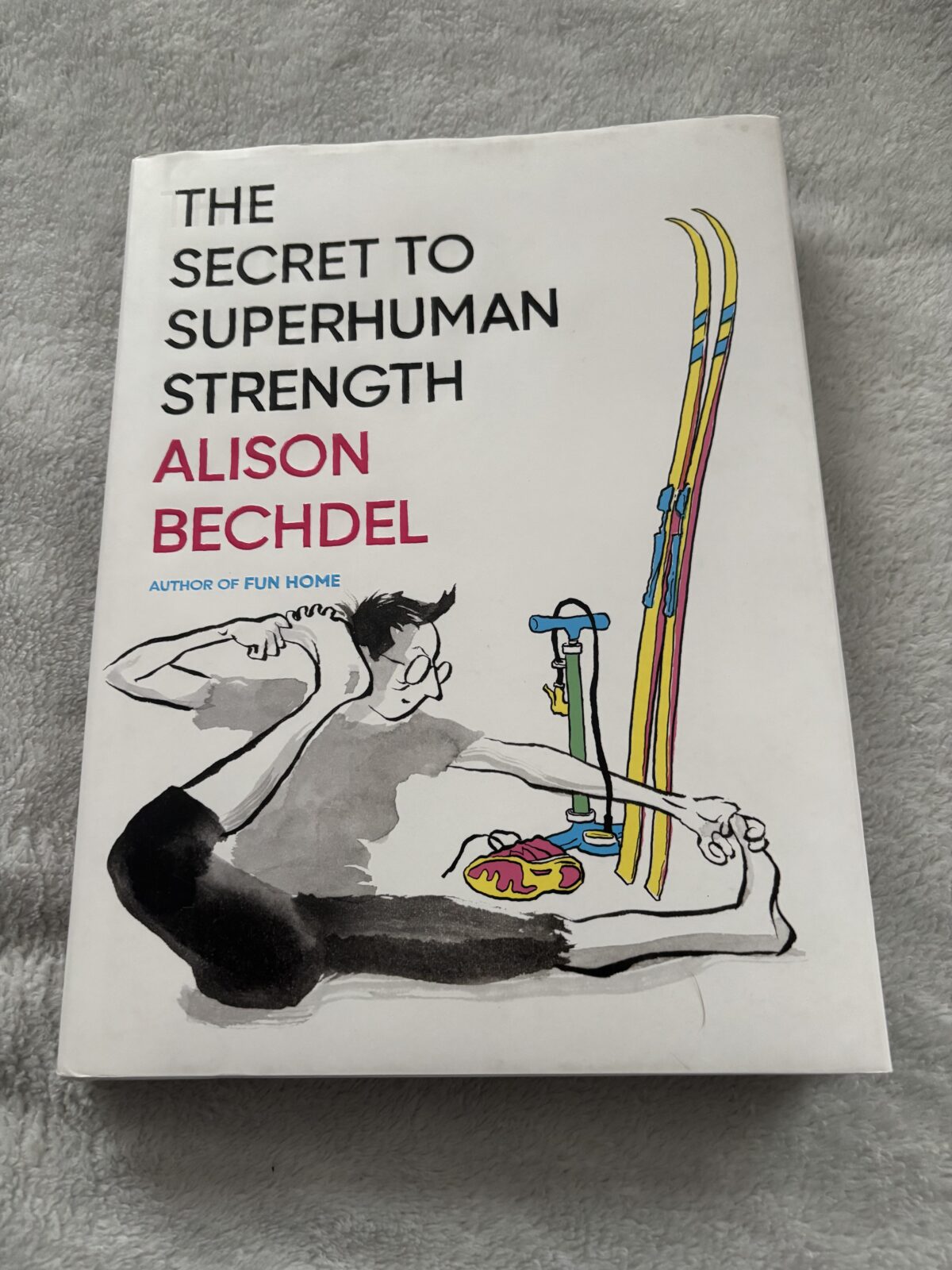
Full of wit and wisdom, Bechdel explores her history and those of other artists. For instance, in testing her appetite for self-destruction, she explores how Jack Kerouac’s life ended. Observing her growth through the decades is fascinating as she deals with love, loss, self-doubt, loneliness, and heartbreak. If you’re older, you’ll enjoy the little nostalgic details that cue where she sits in time and place. Her life experience might turn you on to therapy, reading more, daring more, and living more fully.
From skiing to yoga, cycling, karate, and running, Bechdel seems up for anything to make herself stronger. That’s not necessarily where this journey leads. Her quest for athletic excellence and health drew me in. It was her contemplation of Buddhism that gives readers some solace as we shiver in the cold shadow of existential dread.
What is the secret to superhuman creativity?
People talk about talent, but many may not realize how hard the talented have to work. From my own experience and what I glean from Alison Bechdel’s book, the true answer is vulnerability plus attention to detail.
What you call oversharing, I call the muse. Endemic is about a lonely, neurodivergent woman seeking safety and independence amid a plague. My novels are frequently about flawed protagonists searching for revenge and escape. That’s all me in there somewhere, confessing my sins, imagining clever vengeance, and exposing my not-so-secret resentments.
I resonated thoroughly with Alison Bechdel. Her struggle is a struggle we all share. How do we find our way? How can we live longer, better, and more authentically in a world that often values that quest? I admit I’m still struggling with the way-to-die part of the equation. Reading this graphic novel made me feel a little more comfortable with the relentless passage of time, the scary present, and the dark future.
